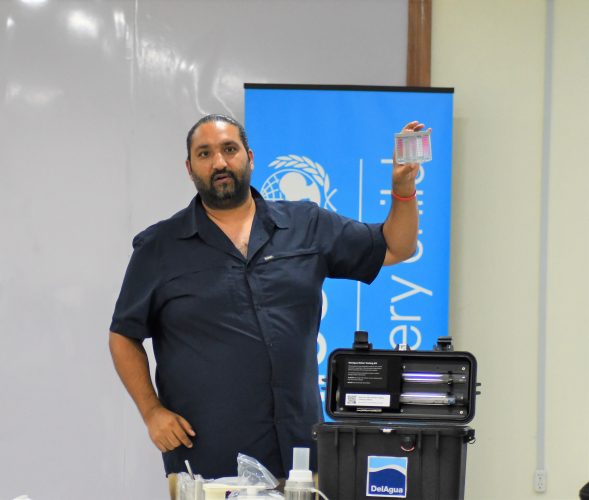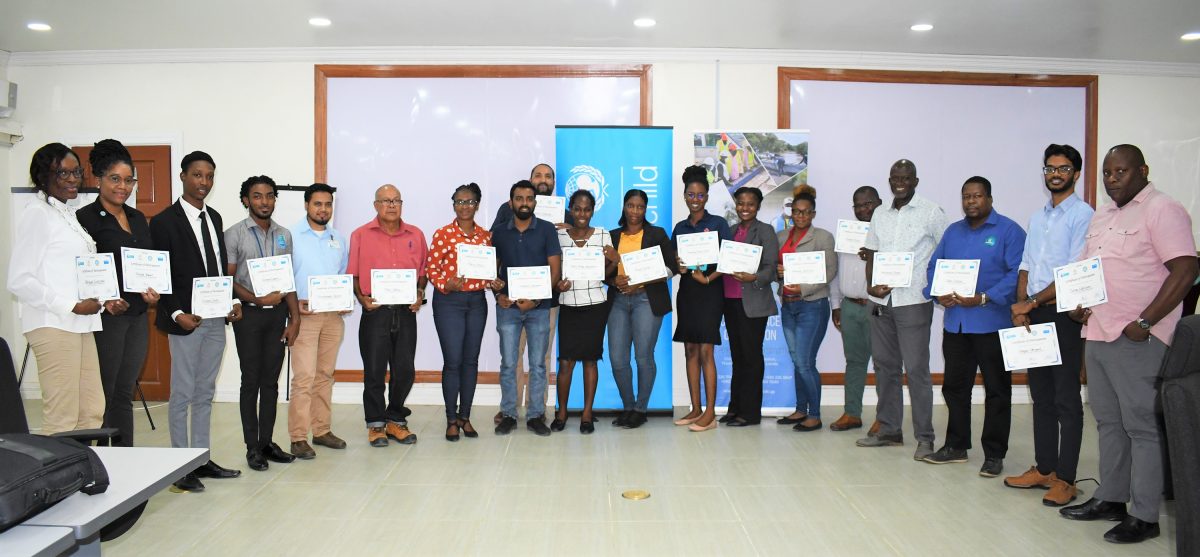Twenty persons in key sectors were trained last week to improve the Water, Sanitation and Hygiene (WaSH) response to emergencies during disasters.
The two-day training, which ended last Thursday, was co-organized by the Ministry of Health in collaboration with the Civil Defence Commission and UNICEF. It focused on standardized WaSH preparedness and response plans, contingency planning, WaSH sector coordination. Key WaSH preparedness actions for the main crises in Guyana were identified.

Participants in the training included representatives of the CDC, Guyana Water Incorporated, the Health Emergency Operations Centre, the Environmental Health Unit, the Standards and Technical Services Unit, the Guyana Red Cross Society, the Mayor and City Council of Georgetown, the Ministry of Housing and Water, Ministry of Education and UNICEF.
Given that WaSH services are usually the first affected in an emergency, Chief Medical Officer, Dr, Narine Singh said that the training would prepare relevant agencies to respond better. “In all emergencies, whether they’re man-made or natural disasters, if we can predict them, we can prepare for them, and we can handle them,” he said.
UNICEF representative Irfan Akhtar highlighted the importance of emergency preparedness while noting the frequency and intensity of extreme weather events such as floods and droughts as a result of climate change. He noted that clean water, basic toilets and good hygiene practices play a vital role in providing children with a healthier life. The critical role of WaSH services to prevent and control epidemic and endemic diseases, he says, has been highlighted by the Covid-19 pandemic, hence why it is important to strengthen responses towards this area,
“This workshop is one step towards strengthening the coordination mechanism and improving our preparedness for any emergency response,” he said.
CDC Director General (ag) Major Loring Benons called for more investment in WaSH services, noting that it is the first line of defence against diseases.
Meanwhile, Abbigail Liverpool, the WaSH Coordination Committee Lead at the Ministry of Health, noted that WaSH contributes significantly to the burden of diseases of public health importance, resulting in more than 3.3% of the global deaths and 4.6% of the disability-adjusted life years. She says that training in WaSH services has long been identified as a priority.
With WaSH services being recognized as a priority, partners plan to elaborate a dedicated WaSH preparedness and response plan for Guyana to be added as an annex of the National Disaster Risk Management Plan, and harmonize a WaSH Rapid Assessment Tool for Guyana’s WaSH sector. The committee will also be organizing a workshop in the coming months on the contextualization of emergency SPHERE- standards for the Guyana WaSH sector.





